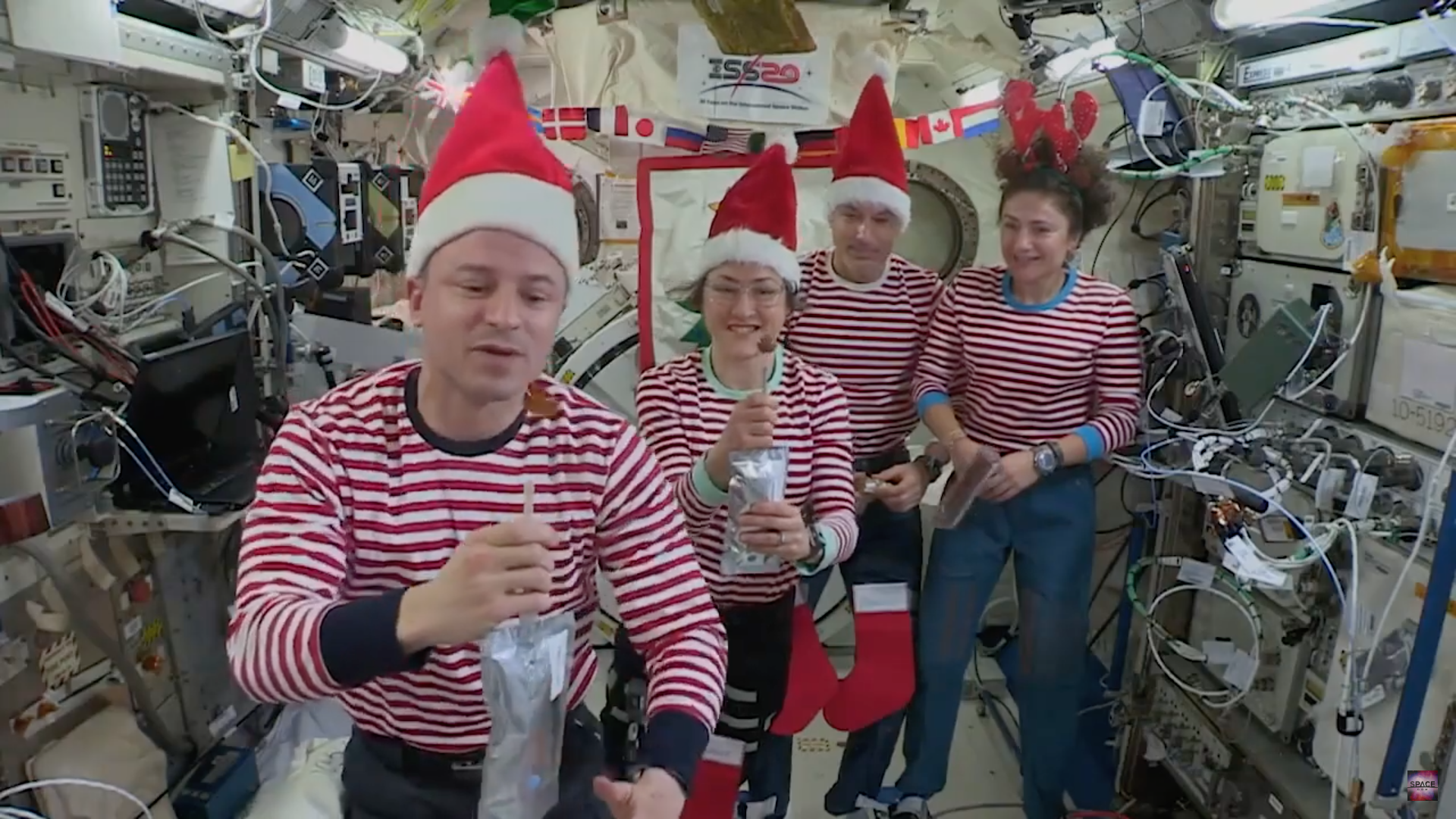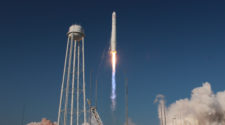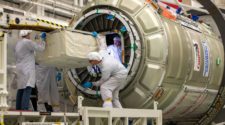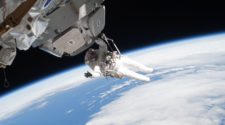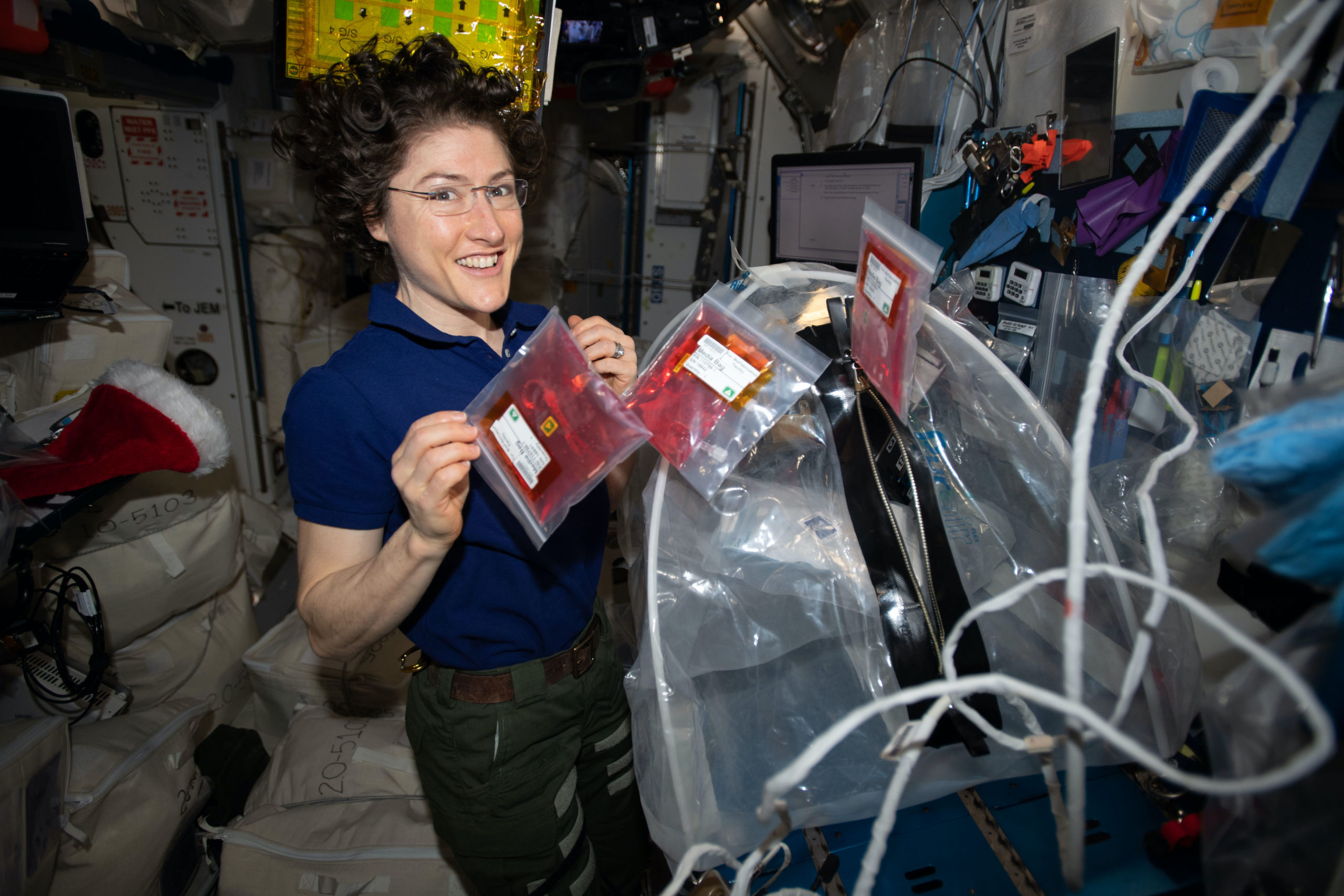
NASA astronaut Christina Koch set a new mark for the longest single spaceflight by a female space flyer this past week on Saturday, Dec. 28 when she broke the record of 289 continuous days in space while living and working aboard the International Space Station (ISS) during the Christmas and New Year’s holiday season.
Koch eclipsed the female space endurance record held until then by NASA astronaut Peggy Whitson – who happily congratulated her.
Overall Koch’s mission is expected to last a total of 328 days. She is slated to return to Earth in a Russian Soyuz spacecraft in just over a month on February 6, 2020.
That will be only 12 days short of the longest U.S. human spaceflight on a single mission – held by NASA astronaut Scott Kelly and established during the One-Year Mission back in 2015 through 2016.
Koch launched to the ISS aboard a Russian Soyuz spacecraft on March 14, 2019. Her stay onboard the space station was extended partway through her mission due to continuing delays in launching astronauts to the space station aboard the Crew Dragon and Starliner commercial crew vessels – as well as obtaining more data on longer-term human stays in space required before sending crews on multiyear long missions to Mars and back.
Here’s more about Christina Koch revealed in a video uploaded to Twitter by NASA:
https://twitter.com/NASA/status/1211003396012093441
Peggy Whitson heartily congratulating Koch, stating “Records are made to be broken … it is a sign of progress! Congrats @Astro_Christina”
Records are made to be broken…it is a sign of progress! Congrats @Astro_Christina! https://t.co/2cbcdfcxHc
— Peggy Whitson (@AstroPeggy) December 28, 2019
Whiston still holds the American record for cumulative time in space at nearly 666 days across five different space missions.
“It’s a huge honor,” Koch said in a live TV interview on Dec. 27 with CBS This Morning.
“Peggy is a heroine of mine who’s also been kind enough to mentor me through the years. You know … it’s not so much how many days you’re up here, but what you do with each of those days. That reminds me to bring my best every single day.
“Overall, I’d have to say that my number one hope for this milestone is that the record is exceeded again as soon as possible. Because that means that we’re continuing to push the boundaries.
“My class was … the first class that’s half female and half male, and we were never held to any different standards or expectations,” Koch elaborated to CBS This Morning.
“Highlighting the fact that it was the first all-female EVA, spacewalk, is important because seeing those milestones be broken sort of tells people where we’re at and where we think that the importance lies.
“I think it’s inspiring because future space explorers do need to see people that remind them of themselves to kind of bring that inspiration home. I know that was certainly true for me and my background. So to have the opportunity to do that for future space explorers is a real honor.”
Koch also tweeted thanks to Whitson for mentoring her:
Five and a half years ago, @AstroPeggy took time to attend my first ever spacewalk training run as a mentor. It is beyond an honor to follow in her footsteps today. I can’t wait to pay it forward to the next explorers and watch them fly even higher. pic.twitter.com/jcrsWFp2D3
— Christina H Koch (@Astro_Christina) December 30, 2019
The dynamic duo of NASA women astronauts – Christina Koch and Jessica Meir – made history on Oct. 18, 2019, when they carried out and successfully completed history’s first all-female spacewalk. Soaring approximately 250 miles (400 km) above Earth while working and floating outside the International Space Station (ISS) they accomplished a critical job to swap out a failed power distribution unit and thereby restored full power to the orbiting research complex. The historic spacewalk generated enormous global interest from the public.
During the 7-hour, 17-minute spacewalk the female pair – both on their rookie space flights – swapped out and replaced a faulty 230-pound power controller component, known as a battery charge-discharge unit (BCDU), with a new one.
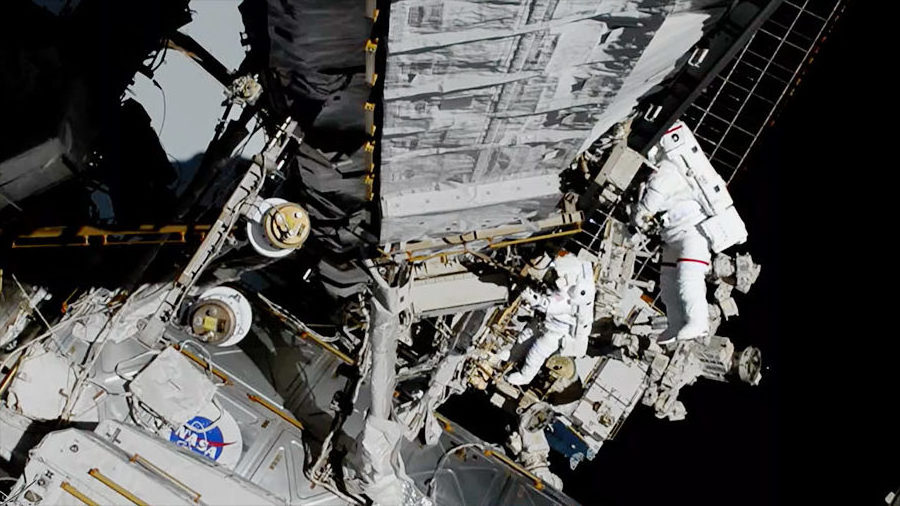
Koch is setting the long duration record while on her first spaceflight. She was selected as an astronaut – along with Meir – in 2013 as part of the first group of astronaut candidates equally divided between men and women.
While setting her spaceflight endurance record, Koch and the six-person multinational crew aboard the ISS also wished everyone back on Earth a Merry Christmas and Happy New Year.
